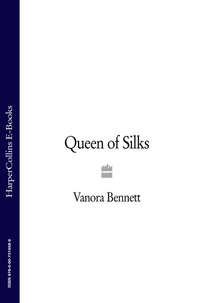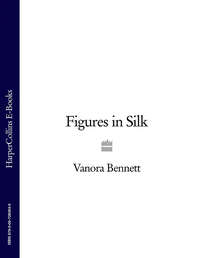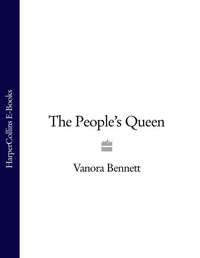
Полная версия
Portrait of an Unknown Woman
‘Stop,’ I said breathlessly, almost unable to pull back but with a new, more urgent question suddenly bursting through my head. ‘Tell me one thing. Why are you letting Father just give you orders like this? You’ve known him for years. You know he loves a good argument. Can’t you at least try and talk him round?’
I couldn’t bear what I saw next. His face fell, and the lover’s antennae I had just discovered felt him moving away somewhere very distant.
A defeated look came over John’s face. ‘I owe it to him to do as he asks,’ he said, very quietly. ‘I can’t even begin to go into all he’s done for me over the years. It sounds odd to say this, since we’re much the same age as each other, but he’s been like a wise father to me for most of my life. I can’t start defying him now.’
‘John,’ I said, with a new resolve in my voice, groping inside my head for a way of showing him how things were for us these days. ‘Let me show you Father’s new life.’
And this time it was my hand on the door, pushing it open into a roar of fresh wind and sunshine, and my strong young arm guiding this man with the troubled eyes out of our darkness.
3
‘Listen,’ I whispered, and tiptoed to the very edge of the gatehouse window, beckoning John forward.
I’d brought him to the western gatehouse again. He was hanging back, bewildered, clearly wondering why I wanted to return to this little brick building when I’d been so scared of it just an hour before. But it had become important to show him the truth. I took his hand and drew him up in front of me so he could peer into the darkness inside too, and the touch was a fresh revelation of how my skin loved being against the skin of those long, fine, delicate fingers. Regretfully, I put that private joy aside. This was no place to think of love.
In that stillness of bodies waiting, with the wind on our cheeks and flapping in our cloaks, we gradually began to hear the whispering from inside the window. Lost, hopeless, desperate; a thin Cockney chant. ‘Lord of your endless mercy bring my body to death … Lord of your endless mercy bring my body to death … Lord of your endless mercy bring my body to death.’ It had been going on from morning to night for the entire week that Father had been away. It had been chilling me every time I crept this way on my walks. I heard it in my dreams. All I could see of John was his shoulders and the back of his head, but I could almost feel the goose bumps rise on his flesh. Slowly he turned his head around towards me, and there was horror on his face, and his mouth was forming the silent words: ‘What is it?’
‘Look inside,’ I mouthed back, ‘but carefully. Don’t let him see you. Don’t scare him any more.’ He peered forward. I knew what he would see when his eyes got used to the gloom: the wooden stocks, and the pitiful little stranger’s figure with his legs and arms trapped in its holes, a living arc of thinly covered bones and torn clothes topped by two bloody eyes, half-closed, over swollen lips moving in perpetual prayer.
John stepped back quickly from the window and I came with him. He looked sick. He hurried twenty steps away with me trotting behind before he paused for me.
‘A heretic?’ he asked in a whisper.
I nodded. ‘This one’s called Robert Ward. He was a shoemaker on Fleet Street until last week. They arrested him as part of a conventicle praying in the leather-tanner’s rooms upstairs. He has six children.’
‘Why has your father brought him to your home?’ I thought there was pity in the hush of his voice, too, and it gave me strength. ‘What’s wrong with a prison?’
‘There’ve been half a dozen of them in the past few months. Father doesn’t tell us anything about them, not even that they’re here. But he told the gardener who feeds them that he just wants to talk them out of evil. I happened to overhear –’ I felt my cheeks redden, though John let my blush pass and didn’t ask how I happened to overhear a conversation so obviously not intended for me and how long it had taken to pick the mulberry twigs out of my hair afterwards ‘– him saying he’d brought them home to interrogate “for their own safe-keeping”.’
‘Well,’ John said, stopping and looking straight into my eyes, visibly trying to follow my thoughts, searching for an explanation to hold on to, ‘perhaps he’s right to do that. Someone’s clearly been beating that man up. He probably is safer here.’
There was something comforting about hearing him say those sensible words. I liked the searching way he looked at me, really listening to my concern, trying to get to the bottom of what was on my mind. But it was too easy to cling to the belief he was offering. I hesitated, then plunged on. ‘But what if …?’ I didn’t know how to end that sentence. I tried again. ‘He’s been here for days. If he looks that way now, when was he beaten up?’
John looked even more closely at me. ‘I’m listening, Meg,’ he said seriously. ‘Are you saying you think it’s your father who’s been beating him?’
‘I don’t know,’ I confessed miserably. The darkest of the thoughts I’d been having seemed impossible now that he’d voiced my suspicion in that familiar, sensible voice – but not quite impossible enough. ‘But sometimes I think it’s possible. So many other things have changed that you don’t know about.’
The sun was a deceptive mellow gold, but the lawn our feet was thudding against was turning hard as iron and John’s breath was freezing to white.
There was more to show. He was shaking his head, looking too unsettled to hear everything at once, as I pulled him forward again. He certainly knew that Father had been at war with heretics ever since Brother Martin had declared war on Church corruption ten years ago and plunged Europe into upheaval. But he might easily not know how far Father’s personal war against evil had taken him: that, as well as his liveried life at court as the King’s most urbane servant – not just a royal counsellor and attendant, in and out of the King’s chambers, but Speaker of the House of Commons in the last parliament, and, since last year, with a knighthood and the chancellorship of the Duchy of Lancaster among his privileges as well – Sir Thomas More now spent large parts of every day trying to stop up every crack through which heresy might seep into England.
It wasn’t the Father we saw at home who’d become a persecutor of men. The man who ate and laughed and talked with us, only less often than before, was the same sunny wit we’d always known. I’d only become aware by accident – by stumbling on his victims – that he seemed to have become someone else too. A frightening stranger with a face turned towards the shadows.
The prisoners I’d been spying on in the gatehouse were the small fry caught in the net of Father’s surveillance and entrapment in the gutters of London; the victims of his agents’ creeping among the leather-sellers and the drapers and fishmongers of the city, hunting down evil in the shape of little men grappling with their consciences in back rooms, before bringing out broken prisoners with piles of logs on their backs as a symbol of the eternal fires they would have faced if they hadn’t recanted.
I didn’t understand the high politics of it. I couldn’t see how the whole spiritual and temporal edifice of the Church of Rome could be threatened by these terrified tradesmen. I couldn’t help but feel sorry for them.
Still, I knew that these humble men weren’t the only ones Father was investigating. There were others in his sights who were far closer in their outlook and beliefs to the way we used to be. The men he was going for hardest these days, people were saying, were the bright young scholars at the universities, who he said were ‘newfangly minded’ and ‘prone to new fantasies’ and might corrupt the very sources of faith, like little Cuthbert Bilney, arrested after preaching a seditious sermon in London, or the six Cambridge students imprisoned in the fish cellar of their college for keeping heretical books. Perhaps these men of learning were genuinely a danger. But it chilled me to think that Father’s new position in the world might be turning him into a defender of the worst as well as the best traditions of the Catholic Church, part of the sequence of foolish friars and grim clerks arguing about the number of angels you could fit on a pinhead whom Erasmus and he had once poked so much fun at.
‘Of course I want to believe he’s being kind,’ I went on, breathless even though we’d stopped walking. ‘That he’s getting these men out of prison because they’re in danger there. That he’s trying to give them time, that he’s reasoning with them and persuading them to recant, and saving their souls. But what if it’s worse than that? What if it is him bloodying these men’s faces out here where no one can see? What if he’s worse than a “total courtier” these days,’ – and I took a deep breath – ‘what if he’s started enjoying torturing people?’
John shook his head. ‘Impossible,’ he said stoutly. He stopped again and put reassuring arms around me. ‘I can see why that idea would worry you, Meg, but you must see how fanciful it is.’ Then, perhaps sensing that I wasn’t relaxing and giving up my fancy as easily as he’d expected, he added: ‘For instance, look how easy he went on young Roper. There are people who’d say that shows he’s too soft for his job.’
I almost laughed with the shock of that thought from another, less worried part of my mind. I had no idea how John Clement had heard about Will Roper’s brief love affair with Lutheranism a few months back. I didn’t think anyone outside our family knew anything about how Will, just qualified as a barrister, had been hauled before Cardinal Wolsey for attending a heretical prayer meeting with some of the German merchants in London. It was all thanks to Father that Margaret’s husband was sent home with nothing worse than a reprimand, when the other men arrested with him were forced to parade to Mass loaded down with firewood and jeered at by the crowd.
Officially, I didn’t know any of this. But there’d been no stopping Will talking while he was in the grip of the new idea, telling us excitedly that it was corrupt to pay to pray for the souls of the dead, because Purgatory had never existed except in the minds of money-grubbing monks; nonsense to believe in the age-old communion of the faithful, living and dead, joined through time in the body of the Church, because faith was a private matter between God and worshipper; and that it was foolish to see divine purpose in the Church of Rome. Forget priests, forget monks; refuse to respect your fathers; break every tie with the past.
Will was nothing if not sincere. He’d argued with Father in every corner of the house and garden. And Father was nothing if not gentle back. I’d seen him walking in the garden with Will, an arm around the younger man’s back, a sorrowful look on his face. ‘Arguing with your husband has got us nowhere,’ he’d told Margaret in the end, ‘so I’ll just stop arguing.’ Perhaps it was his prayers for Will’s soul, and his forbearance, that finally persuaded my brother-in-law to stop his flirtation with the forbidden and rediscover his passionate belief in a more familiar form of God (and his passionate admiration of Father into the bargain).
‘That wasn’t the work of a bigot, now, was it?’ John was saying gently. ‘No one could have been more restrained.’ And he was encouraging me to smile, to wipe the fears from my heart. My mouth twitched back at him. It was a relief to remember that moment of sweetness. I almost gave in. But not quite.
‘But it doesn’t make sense,’ I said stubbornly. ‘How he behaved with Will doesn’t fit in with the other things he’s been doing. In the New Building, where we’re not invited. And in London, and at court. That’s what I don’t understand.’
John was towering beside me, with an anxious look on his face again that probably matched the anxious look on mine. I felt disloyal to be snooping through the parts of my father’s public life that he didn’t tell us about at home, but I’d been a secret agent in my own home ever since we came to Chelsea. So I kept drawing on his arm, pulling him on through the garden. The only way I could show John what troubled me about the direction Father’s mind was turning – how he was leaving behind the civilised thinking that had created our bookish, loving family; how he was now to be more feared than trusted or obeyed – was to show him what I’d seen.
We were walking towards the New Building – Father’s sanctuary from court life: his private chapel, his gallery, his library, his place of contemplation and prayer, the place where he wrote his pamphlets. It had monkish bare walls, a single bench and a plain desk. He prayed, then he sat at that desk and poured out the filth of his public letters. I couldn’t imagine how he could bring himself to even think some of the words he came up with, let alone write them, let alone publish them:
Since Luther has written that he already has a prior right to bespatter and besmirch the royal crown with shit, will we not have the posterior right to proclaim the beshitted tongue of this practitioner of posterioristics most fit to lick with his anterior the very posterior of a pissing she-mule until he shall have learned more correctly to infer posterior conclusions from prior premises?
I opened the door, brought John inside (he seemed taller than ever, hunched inside its austere confines), and closed it, silently pointing out the brown-stained tangle of the scourge swinging from a hook on its inner side. The scourge was another new manifestation of Father’s conscience: his protection against the bodily lusts that kept him from becoming a priest himself long ago; the weapon he turned on himself in his bigger war against instinct and unreason.
What private lusts, and for whose bodies, would made him flail his own skin until he drew blood? It hurt me to think of his poor innocent skin, already chafed and broken by his hair shirt, lashed into worse pus and scab by that ugly sliver of bloodied leather. It was almost as bad as seeing the tortured prisoners at the other end of the garden, to imagine him torturing himself, alone, in here.
He kept his pamphlets and writings in the library, along with the confiscated, banned and impounded books that he had special dispensation from Bishop Tunstall to read and refute. He had a complete library of heresy here, in his place of prayer, down to William Tyndale’s New Testament in English – one of the few copies that had escaped the bonfire at St Paul’s. Cardinal Wolsey had thrown the rest into the flames. Watching him were 30,000 cheering Londoners and my grimly approving father.
On the desk was last week’s draft of the letter Father had been writing to Erasmus for so long, begging him to get off the fence and denounce Luther. I’d read it before, and been chilled by the fury of Father’s phrasing: he wrote that he found all heretics ‘absolutely loathsome, so much so that unless they regain their senses I want to be as hateful to them as anyone can possibly be’.
Hateful indeed. I shivered. The word brought back the image of Robert Ward, the scared little shoemaker locked up in our garden, praying to die.
I knew Father was wasting his ink trying to persuade Erasmus. Nothing I’d seen the old man write suggested there was the least chance of him publicly supporting Father in any crusade against the religious reformers. He was too busy feeling disappointed, in Luther and Zwingli on one hand, in Father on the other. In everyone who’d once been a humanist but had since become a zealot.
Erasmus might have taken to calling the most ranting evangelicals ‘rabble-pleasers’, ‘mangy men’, and ‘utterly lacking in sincerity’. But he was no more impressed with the ‘uncouth, splenetic’ style of Father’s written attacks, which he said, ‘could give Luther lessons in vehemence’.
I felt for Erasmus. Deserted on both sides by the former disciples of the new learning as they forgot the classics and rushed into their violent religious extremes instead. Sitting in Basel, looking forlornly round for intellectual playmates who might still enjoy Greek writings and Arabic geometry, or revel in moderation, mockery, learning, laughter, inquiry, beauty, truth and all the rest of the last generation’s forgotten dream. The same dream that Father brought all of us up to be a living illustration of; the same dream that Master Hans would tomorrow start illustrating us as illustrating. A charming public image coming into existence of a private reality in danger of fading away.
‘Look at this,’ I heard myself whispering to John, pulling out one offending volume after another and opening them to the worst pages. ‘And this. And this.’ There was still enough January sunshine to read by inside. But he screwed up his eyes with a show of reluctance and took them to the desk, by the window, to see properly.
‘Don’t you see, John?’ I pressed, and my whisper hissed against the bare plaster. ‘He’s lost his reason. We could wait forever for him to give us permission to be together. He might never do it. He can’t think about any of us any more. He’s too obsessed with this. He’s gone mad with hate.’
I’d been thinking this about Father for so long, while I’d had no one to share it with, that it was a relief to speak my doubt aloud, especially to the man I loved.
But John was squaring his shoulders, and giving me the same kind but unconvinced smile that my smaller self had seen whenever I offered the wrong answer in a lesson. He shook his head.
‘It’s his job,’ he said simply, dropping the page of foulmouthed nonsense about Luther’s posterioristics. ‘That’s William Ross speaking, not Thomas More.’
Another neat commonsense blow at my fears; another sign that John knew a lot about Father’s work. I had to admit that Father had been asked by the King – and not chosen himself – to reply to Luther’s writings against the Pope. And it was true that he’d been ashamed enough of the crass language, zealotry and poor reasoning of the writing he was doing in service of King and country that he’d only published it under a pen name. It still made me hot with shame to read those words: William Ross was a bullying bigot, and everyone knew William Ross was Father. Still, if John Clement could separate the two names in his mind, perhaps that meant Father hadn’t compromised himself as disastrously as I’d thought.
‘He’s not imagining the danger of heresy,’ John said gently, sensing that he’d found a chink in my armour. ‘I know that the man you showed me in the gatehouse looked pitiful. But we have to remember that he’s not what he seems. He’s part of the darkness that might envelop Christendom.’
‘How can he be? He’s just a skinny little cobbler from Fleet Street!’ I said hotly, on the defensive again.
‘But a skinny little cobbler from Fleet Street can be the darkness,’ John answered persuasively. ‘Or he can to most people. Look, you’re young enough, and lucky enough, to have been brought up in a time of peace and in a sophisticated household where everyone has read about different peoples through the ages having had very different kinds of beliefs and lived in very different kinds of states and still prospered. Your head is full of Greek gods and Roman lawmakers and Eastern men of learning and stars moving in orderly fashion through the heavens. You think civilisation is everywhere. So you have a confidence that you don’t even know is unusual. You don’t live with the fear of chaos breaking through and destroying the way we live that haunts the rest of us. You have no idea how other people feel. Most people feel mortal terror at the idea of the unholy chaos outside, waiting to engulf them. And I don’t just mean the poor and superstitious and unlettered, the people brought up without sucking in Seneca and Boethius and algebra with their mother’s milk. I mean everyone brought up in the shadow of war. Everyone brought up before this rare time of peace and outside the very unusual household you’re lucky enough to come from. I mean everyone older and less lucky than you. I mean people like your father and me.’
‘But you and Father are men of learning! You know everything I know and more!’ I cried, full of frustration that he wasn’t following my train of thought.
‘Ah, but we weren’t brought up to it, and that’s the difference,’ he said, with a certainty that made me pause. ‘We grew up in a world where there was nothing but the fear of the darkness. When death was waiting round every corner. When London could be surrounded at any time by an army threatening to string up every man and rape every woman and throw babies onto their sword blades and torch every parish church. When books were rare and locked up inside the monasteries, and our only hope of salvation was the One True Church and the priests who could mediate for us with God. Of course men of my age and your father’s age fell in love with the new learning and the new freedom to think as soon as we had peace and leisure enough to explore it. But we haven’t forgotten the fear we grew up with. It’s always at the back of our minds. And we can’t feel easy when people take up arms against the Church. You can’t expect that of us.’
He paused, waiting to see the light of acquiescence in my eyes. But I ploughed on, even though his assurance was beginning to make me feel I’d only understood part of the problem. ‘But Father and Erasmus and all the rest of you used to talk about uprooting corruption in the Church,’ I said plaintively. ‘And none of you expected to be treated like criminals for it. So why is it so much worse if a few cobblers get together to pray in a leather-tanner’s room?’
He sighed patiently. ‘It’s not just a few cobblers or a few prayers any more, Meg. It’s not a bit of mockery at the table about crooked priests selling indulgences either. It’s gone much further than that. What’s happening now is an assault on God and His Church. It’s armies of peasants running amok in the German lands burning down churches and murdering the faithful. It’s rogue monks betraying their oaths of celibacy and marrying the nuns who’ve sworn to be the brides of Christ. It’s the old chaos, the horror you’ve never known, threatening us all. Even if you did understand, it would be hard for you to see the danger from the calm of England, but anyone who’s been in Europe in the past few years and knows the signs can see the darkness looming again all over Christendom. It could happen here. Your father is right to be frightened, and he’s right to fight it. We couldn’t hope for a better general than him to lead us in the war against the heretics – precisely because he is the same scholar and gentleman who brought you up. The same good, subtle, generous, wise man. Which is why nothing will make me believe what you’re afraid of – that he could enjoy causing pain. You have to put that idea aside. It makes no sense.’
His certainty sounded stronger than mine. His loyalty to Father made me feel ashamed. I looked down.
‘It’s simpler than you think, Meg,’ he said. ‘You and I will find happiness together. Neither of us will ever be alone again. But we have to do as he says. We mustn’t distract his attention. He’s fighting his war on many fronts. It’s not just cobblers who are a danger. There’s worse elsewhere. There’s heresy rearing its ugly head everywhere – even at court.’
He shifted his shoulders, looking around for the door, clearly unwilling to continue trespassing in Father’s private place. And, taking my arm again as we stepped out into the clean light, he told me the secret of the King’s Great Matter.
Henry VIII, in love with a lady-in-waiting. Henry VIII, in love with a lady-in-waiting at a court so full of rose bowers and Canary wine and dancing till dawn and flashes of leg and cleavage and canopied beds with feather pillows that it seems made for love. Henry VIII, so in love with the one lady-in-waiting who refuses to recline in any of the rose bowers or feather beds at the court made for love that he wants to get rid of his Queen and marry again.
The King is a glittering bubble of gold and bombast. He never takes no for an answer. He is being tormented equally by love and by the Book of Leviticus. ‘If a man shall take his brother’s wife, it is an unclean thing … they shall be childless,’ says Leviticus. And Leviticus is telling the King just what he wants to hear, now that he wants to be shot of the Queen, because once, long ago, for a few months, the Queen was the child bride of the King’s child brother Arthur, who died.






